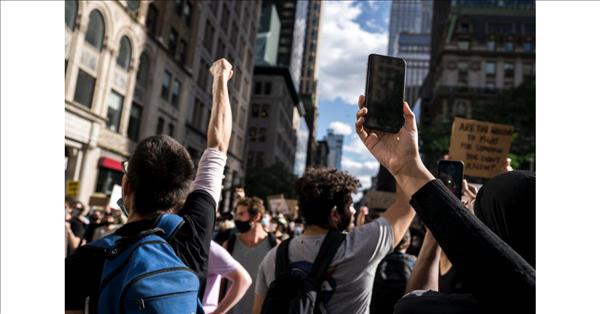(MENAFN- EIN Presswire) Civil society organizations said that internet access is critical for achieving their mission
Survey finds that while civil society participants see the internet as critical to achieving their mission, a lack of access to technology limits their impact
Civil society organizations collectively serve millions of the most vulnerable people on earth. We must ensure they have the tools they need to improve people's lives and achieve their missions.” - Chris Worman, Head of Strategy at Connect Humanity.UNITED STATES, January 25, 2023 /einpresswire.com / -- Civil society organizations (CSOs) around the world say barriers to digital technology prevent them from serving their communities and achieving their potential.
In the survey of 7,500+ organizations that collectively serve 190 million people, 95 percent said the internet is critical to their ability to do their work, but 78 percent said that a lack of internet access, tools, or skills limits their ability to serve their communities effectively.
The data, based on the largest-ever survey of civil society regarding the digital barriers they face, was published today in a report by Connect Humanity:“State of Digital Inequity: Civil Society Perspectives on Barriers to Progress in our Digitizing World”.
With at least a third of the global population still living without internet access, the report offers rich insights into what digital technologies mean for organizations working to improve lives and end human suffering, including:
- Organizations believe digital technologies are critical to achieving their mission. Working across issues from education and social services to healthcare and the environment, 95 percent of CSOs said the internet is vital to their ability to do their work.
- Those served by civil society often lack internet access, limiting the potential impact of organizations. Just 12 percent of respondents strongly agreed that the communities they serve have internet connectivity.
- Internet speed and reliability are among top barriers preventing organizations from using technology effectively. When asked to identify their top three technology challenges, 39 percent pointed to slow speeds and 32 percent to unreliable internet. When asked about challenges facing their communities, 41 percent said affordability of internet service was a top issue and 35 percent said a lack of availability.
- A lack of digital skills is a major barrier. Digital skills gaps emerged as the most frequently cited technology barrier for organizations (39 percent) and the communities they serve (50 percent). Only 12 percent of organizations strongly agreed their employees are well trained on the software and technologies they use.
- Organizations struggle to pay for core technologies. 43 percent of organizations said internet access was too expensive, with 64 percent struggling to pay for computers. 67 percent said the cost of internet access is too high for their communities.
“Civil society organizations collectively serve millions of the most vulnerable people on earth. We must ensure they have the tools they need to improve people's lives and achieve their missions”, said Chris Worman, Head of Strategy at Connect Humanity.“When we close digital divides, we expand educational opportunities, improve public health, boost economies and create new opportunities for work. We have the knowledge and tools to get this done - now we need governments, investors, and philanthropic funders to do what the corporate sector has been unable to do - work with communities and commit the finances to make digital equity a reality for all.”
During the Covid-19 pandemic, internet access was a lifeline for many - and must today be understood as an essential public good for individuals and for organizations who provide services. This was reflected in the survey which showed that 91 percent of respondents believe internet access is a basic right.
The Covid-19 crisis has also led to renewed energy to accelerate broadband availability and close digital divides. Among the philanthropic funders who were surveyed, 58 percent of grantmakers that fund projects to increase internet access plan to increase investment over the next five years, compared with just 10 percent that plan to scale back.
However, 43 percent of grantmakers surveyed do not invest in programs to expand internet access - highlighting an opportunity for more philanthropic support to close the digital divide. Separate analysis published recently by Connect Humanity and Candid found that just 0.05 percent of philanthropic giving by large US foundations in the past decade went to digital equity causes.
The survey was run by Connect Humanity and TechSoup, with additional distribution from CIVICUS, FORUS, NTEN, and WINGS.
ENDS
The report is available at:
About Connect Humanity
Connect Humanity is a non-profit fund advancing digital equity by investing in community connectivity providers. It helps underserved communities identify the right solutions to meet their connectivity needs and provides funding and technical assistance so they can build the internet infrastructure, tools, and skills they need to participate fully in a digital society. Website:
Calum Cameron
Connect Humanity
+44 7450 680400
Visit us on social media:
twitter
linkedin




















Comments
No comment